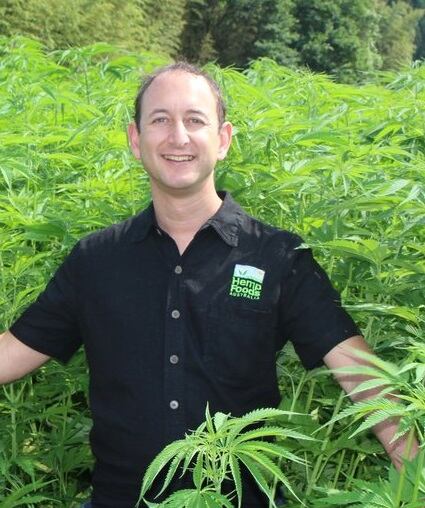Medicinal cannabis is used to treat chronic or painful illnesses, and while it is currently sourced from overseas on a case-by-case basis, it may now be available in eight weeks under the new scheme. (You can read the full details of the plan in our article here)
Federal health minister Greg Hunt said Australia would seek to boost local supply and ease import laws to meet demand, to ensure everybody who requires medical cannabis can access it safely and securely through their GP.
Now industry and academics have been responding to the announcement.
One company actively exploring the opportunities is Elixinol, run by Australian Paul Benhaim. He established the firm five years ago in the US because the laws at the time didn’t permit him to do so in his own country.

The company now has a turnover running to several million dollars and manufactures a range of cannibdiol (CBD) and hemp-based products.
“We have applied for an import licence in the first place,” he told us, “and will then look to manufacture in Australia if we can.”
Billion dollar industry
While welcoming the press attention given to the government announcement, he said in reality there was little new information, other than the timescale, from what was announced last November when the administration indicated it would legalise cannabis for medical purposes.
“This has the potential to a $2bn dollar industry according to some reports,” he added. “But we are not celebrating yet. There are still unanswered questions because the government hasn’t said what conditions can be treated or who the authorised prescribers will be. If they mean only doctors, then doctors will have to quickly learn about the benefits.”
In academia, Associate Professor David Allsop, an associate director at the Lambert Initiative at the University of Sydney for research on cannabinoid therapeutics, said the measures announced were a welcome step, but also said there were some causes for concern.
He questioned whether allowing bulk importation and storage from overseas would interfere with the government's November 2016 legislation, designed to encourage local Australian companies to establish growing and manufacturing operations.
He also referred to the fact that a doctor still needs to play the leading role.
“Most doctors either do not know how to apply, do not have the required training or expertise to apply, or are politically or philosophically against supporting a medical cannabis application," said Allsop.
Meanwhile, Dr Scott Smid, a senior lecturer in pharmacology at the University of Adelaide, said a critical next step was to conduct more research into how effective medicinal cannabis is and under which therapeutic contexts.
“We know a bit about THC, but even the pharmacology of another major cannabinoid, cannabidiol is still emerging. Add to that the 60-odd other cannabinoids and hundreds of plant terpenes and it becomes a tricky puzzle to tease out what works and where in the body, or even the added complexity of how they may all work together in the so-called ‘entourage effect’ to provide a potential therapeutic benefit,” he said.
Hemp for food?
Meanwhile Benhaim, who also has a hemp business, Hemp Foods, is hoping the developments around medical cannabis will also lead to a positive outcome for a forthcoming ruling on hemp products.
The company currently manufactures hemp seed, protein and oil products, and while it is currently legal to grow, manufacturer, and export hemp food products in Australia, it can only be distributed within Australia for use in cosmetics or fibres.
Ministers are due to decide in April if such products can be declared as a human food and nutrition source, which would have significant implications for the dietary supplements and functional foods sector.
"This comes under a completely different set of rules and we are expecting to have an update on this shortly," he said. "We hope the news will also be positive."
Rich in polyunsaturated fatty acids and protein, hemp is different to other varieties of marijuana as it contains no, or very low levels of THC, the cannabinoid associated with the psychoactive properties of marijuana.
In March 2016, ministers asked food safety body FSANZ to prepare a proposal on how, if it was considered appropriate, low-THC hemp could legally be designated as a food. This will now be debated by the Australia and New Zealand Ministerial Forum on Food Regulation who will pass judgement in two months' time.

